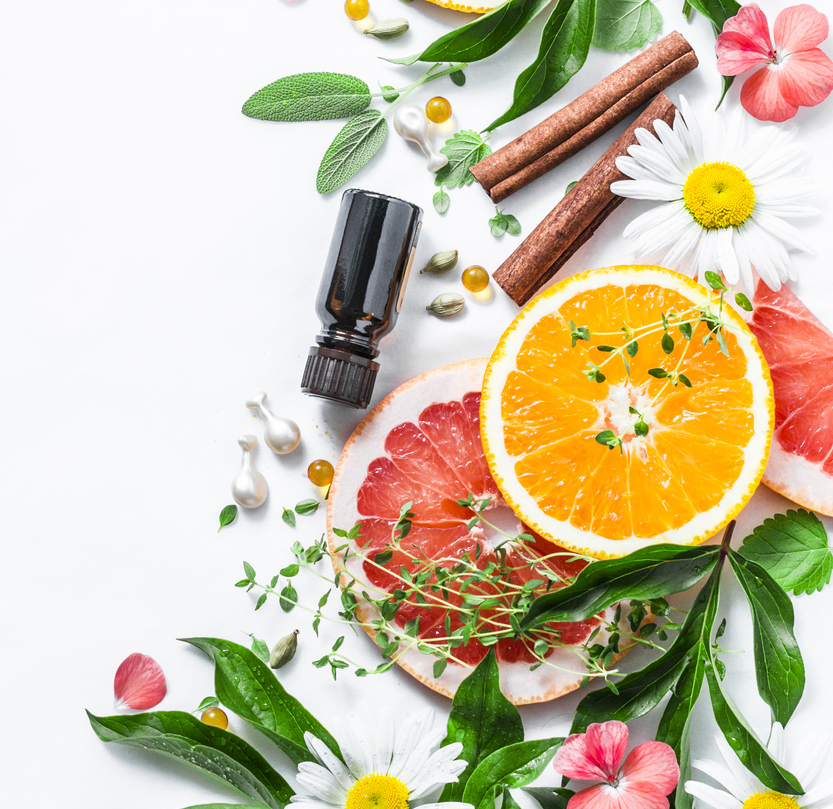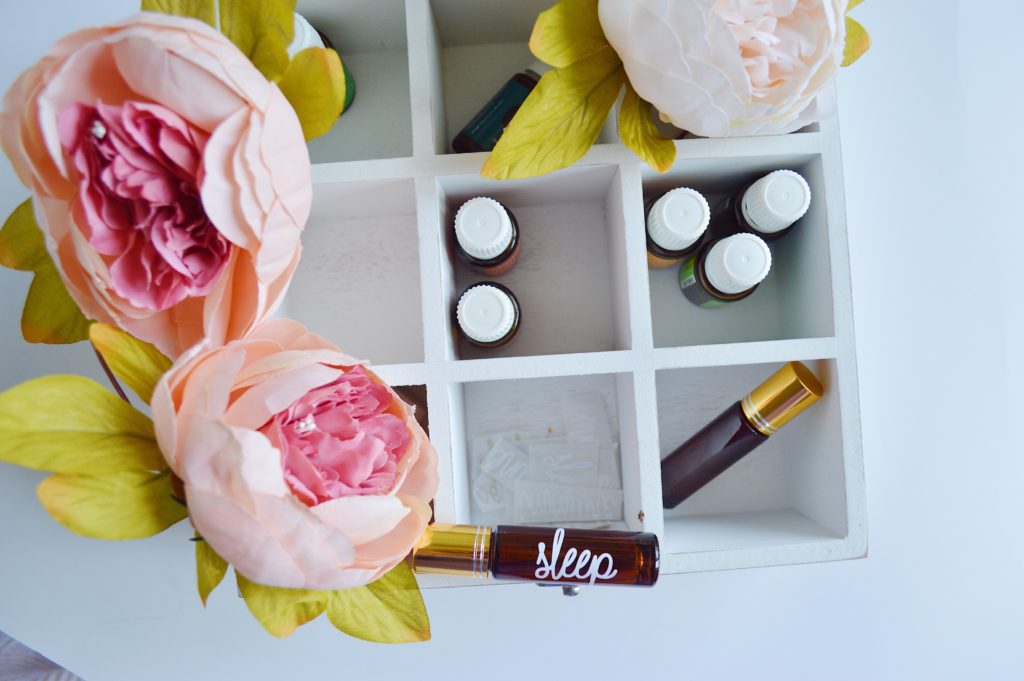Have you ever had a client reach a point where they were no longer making any progress? They hit a wall, feel blocked, are no longer having “aha”-moments, and they just seem stuck?
As Health Coaches, we know there is more to the story. Symptoms are always surface-level indicators of a deeper matter — this is often an internal struggle of some kind.
In these moments, we have to play detective!
We have to ask questions and explore how to get to the root cause of what is actually going on. Often, it’s not a quick-fix that can be solved in one coaching session.
As a Health Coach, we have multiple tools in our toolbox. We support our clients in finding tools that work best for them based on where they are at the moment.
I believe aromatherapy is one tool in our toolbox that is underutilized when it comes to coaching!
Imagine setting the stage for your client to come to see you. You are prepared with questions, stats, recommendations, and maybe even homework. They come to their session, and you’re struggling to help them break through.
Scenarios like this are frustrating for both the client and the coach! Maybe you’ve been there!
ESSENTIAL OILS TO SUPPORT YOUR CLIENT’S EMOTIONAL HEALTH
We are emotional beings!
How we manage our emotions is key. What emotions are your clients experiencing? What emotions are keeping them blocked? Are certain emotions running the show (and their life)?
Below you’ll find a list of emotions and essential oils that can support your client on their journey!
I love combining essential oils with other practices such as EFT, meditation, journaling, self-care routines, and more.
Here are 7 common emotions and essential oils to use to create space for a breakthrough.
Note: Anxiety, fatigue, and stress are very common states of being these days. I chose not to include those emotions so that we can shine a light on other emotions that are less talked about in aromatherapy.
ESSENTIAL OILS FOR “DIFFUSING” ANGER
Anger is an emotion that is often glossed over. The medical definition of anger is “an emotional state that may range in intensity from mild irritation to intense fury and rage. Anger may have physical effects such as raising the heart rate, blood pressure, and the levels of adrenaline and noradrenaline.”
No matter what we’ve been through on our journey, anger is a natural part of the healing process. My favorite essential oils for anger are geranium, lavender, Melissa, neroli, and rose!
- Basil
- Chamomile
- Geranium
- Hyssop
- Jasmine
- Lavender
- Melissa
- Neroli
- Rose
- Ylang-ylang
ESSENTIAL OILS FOR DEPRESSION
Depression can be a situation or ongoing, depending on the person.
The medical definition of depression is “an illness that involves the body, mood, and thoughts and that affects the way a person eats, sleeps, feels about himself or herself, and thinks about things.”
A few essential oils that can support you or your clients during these times include:
- Angelica
- Bergamot
- Cedarwood
- Chamomile
- Clary Sage
- Cypress
- Geranium
- Helichrysum
- Jasmine
- Lavender
- Lemon
- Marjoram
- Neroli
- Orange/Lime
- Patchouli
- Peppermint
- Petitgrain
- Pine
- Rose
- Sandalwood
- Spikenard
- Ylang-Ylang
ESSENTIAL OILS FOR FEAR
Fear is nicely summarized by an article found in Psychology Today as “a vital response to physical and emotional danger; it has strong roots in human evolution. If people didn’t feel fear, they couldn’t protect themselves from legitimate threats, which in the ancestral world frequently resulted in life-or-death consequences.
In the modern world, individuals often fear situations where the stakes are much lower, but their body and brain still treat the threat as lethal. This can trigger an extreme, and often unnecessary, fight-flight-or-freeze response.
As a result, people may find themselves avoiding challenges that could benefit them in the long run or hanging back during social interactions for no good reason.
When people today do face deadly or extreme danger, it can sometimes cause lingering trauma. These traumas can trigger a fear response that is hard to quell, even when the risk has passed.”
In these situations, getting to the root of fear is essential.
The essential oils recommended in these circumstances depend greatly on the root cause; however, here a few essential oils that can support emotions of fear in general:
- Chamomile
- Hyssop
- Melissa
- Myrrh
- Neroli
- Rose
- Thyme
ESSENTIAL OILS FOR FORGETFULNESS
Forgetfulness is something that many of us deal with regularly.
When we are trying to multitask, our minds are full of distractions, and we are not focused on what’s happening in the present moment.
In some cases, forgetfulness can be a symptom of other issues such as lack of sleep, medications, depression, stress, or other illnesses.
Here are a few essential oils that can help bring clarity of mind and can increase concentration.
My favorites are cardamom, lemon, peppermint, rosemary.
- Anise
- Cardamom
- Clove
- Fennel
- Lavender
- Lemon
- Melissa
- Peppermint
- Rosemary
- Thyme
ESSENTIAL OILS FOR GRIEF
The medical definition of grief is “The normal process of reacting to a loss. The loss may be physical (such as a death), social (such as divorce), or occupational (such as a job).
Emotional reactions of grief can include anger, guilt, anxiety, sadness, and despair. Physical reactions of grief can include sleeping problems, changes in appetite, physical problems, or illness.”
When my grandmother passed away, essential oils became a crucial part of my grieving process. I relied heavily on cypress, frankincense, marjoram, and sage.
- Cypress
- Frankincense
- Hyssop
- Juniper
- Marjoram
- Rose
- Rosemary
- Sage
ESSENTIAL OILS FOR HYPERSENSITIVITY
Psychology Today defines hypersensitivity as “acute physical, mental, and emotional responses to external (social, environmental) or internal (intra-personal) stimuli.”
Many people stay quiet or hide their feelings and providing a space where we can open up is important.
My personal favorites from this list are geranium, lavender, marjoram, neroli, and rose.
- Cedarwood
- Chamomile
- Clary Sage
- Geranium
- Lavender
- Marjoram
- Myrrh
- Neroli
- Rose
ESSENTIAL OILS FOR INSOMNIA
The medical definition of insomnia is “the perception or complaint of inadequate or poor-quality sleep due to several factors, such as difficulty falling asleep, waking up frequently during the night with difficulty returning to sleep, waking up too early in the morning, or unrefreshing sleep.
Insomnia is not defined by the number of hours of sleep a person gets or how long it takes to fall asleep; it is a measure of satisfaction with sleep.
Individuals usually vary in their need for and their satisfaction with sleep. Insomnia may cause problems during the day, such as tiredness, a lack of energy, difficulty concentrating, and irritability.”
My personal favorites for insomnia are chamomile, lavender, marjoram, sage, and sandalwood.
- Anise
- Bergamot
- Chamomile
- Cypress
- Fennel
- Frankincense
- Geranium
- Jasmine
- Lavender
- Marjoram
- Melissa
- Neroli
- Nutmeg
- Petitgrain
- Sage
- Sandalwood
- Spikenard
- Ylang-ylang
PERSONALIZATION IS ESSENTIAL
As with anything, what works for one person does not work for another. The same is true for essential oils. It’s a matter of understanding personal preferences, individual needs, and customizing it accordingly. Be open to the fun and exploration of finding what works for both you and your clients.
Essential oils are highly concentrated, which means a little goes a long way.
There are special considerations depending on your client’s age, pregnancy, health conditions, and even specific prescriptions.
I have my personal beliefs based on hours of studying aromatherapy; however, I urge you to put some best practices in place to protect you and your clients.
Please see the basic essential oil safety tips here.
HOW TO USE ESSENTIAL OILS WITH YOUR CLIENTS
Here are some ways you can add aromatherapy into your practice regularly.
1. DIFFUSE ESSENTIAL OILS DURING YOUR SESSION
Have your clients fill out a form 24 hours before your session to see what’s going on with their emotional, mental, and physical health.
- What are their needs?
- What are they experiencing?
- What are their struggles?
Here are some additional steps on how to create a safe space for your clients.
2. USE ESSENTIAL OILS FOR PHONE SESSIONS
This is a similar process to above. Find out 24-hours in advance what’s going on with your client emotionally and physically.
What are they struggling with in their life?
If you don’t know if they have essential oils, be sure to find out. If they do, ask what essential oils they already have at home.
Once you have these details, tell them how to prepare their space for your phone conversation.
They can diffuse, use an oil burner, or use an essential oil that is diluted in a carrier oil to rub on their wrists. If they don’t use them, see options #4 and #5.
3. USE ESSENTIAL OILS FOR A CONFIDENCE BOOST
Do you have a big talk, event, group coaching, or workshop coming up?
You can diffuse essential oils in the room or wear aromatherapy jewelry to boost your confidence!
Choosing an oil can help set the mood and intention for your talk.
Note: choose for subtle scents like lavender and citrus oils for large crowds, as some people are hypersensitive to smells.
4. ADD AN ADDITIONAL INCOME STREAM
As with supplements, you can recommend essential oils for purchase as an additional revenue stream for your business.
There are a lot of essential oil companies out there, so the key is to do your research and choose the one that you prefer.
You can become an affiliate or sell a particular brand as part of your business model.
Tip: Allow space for your clients to choose their own brand as well.
5. GIVE OILS TO SHOW APPRECIATION
I love using aromatherapy products as client appreciation gifts.
If you sell high-end coaching packages, adding these as a bonus can be a great way to introduce aromatherapy to your client.
This is an excellent option if your clients do not have essential oils already.
IN CONCLUSION
Aromatherapy is one tool in your Health Coach toolbox that can be used to set the stage for a client breakthrough (especially when they are emotionally blocked).
Remember, essential oils can enhance creativity, fun, and self-exploration.
They can help:
- Clear the path when there is confusion and where mental clarity is needed.
- Aid in detox and when cravings hit.
- Relieve stiff and sore muscles from exercise.
Even with all these ways to utilize aromatherapy, my favorite way to utilize essential oils is for emotional support.
Think of essential oils as a tool to enhance other techniques you are already using in your practice.
I love creating unique personal blends for my clients based on their health and wellness needs to support them emotionally, mentally, physically, and spiritually.
What are your favorite essential oils for emotional support? Tell us in the comments below!



+ show Comments
- Hide Comments
Free Resources
Take A Look at the latest from ITN:
Courses:
add a comment